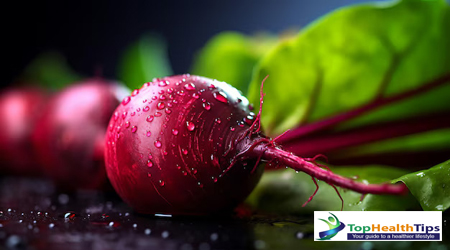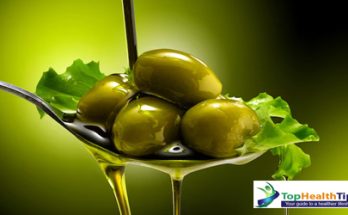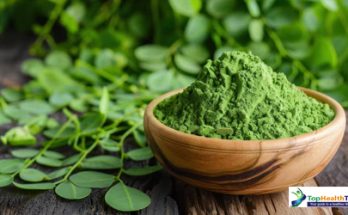Beet root, with its rich color and unique flavor, is not just a visually appealing vegetable; it’s a powerhouse of nutrients that offers a myriad of health benefits. From improving cardiovascular health to enhancing athletic performance, beet root deserves a prominent place in your diet. In this article, we will explore the science-backed benefits of beet root, practical ways to incorporate it into your meals, and potential side effects to consider.
Understanding Beet Root
Beet root is the edible part of the beet plant, which also includes the leaves known as beet greens. It has been used in various cuisines around the world and is known for its deep red hue, which comes from betalains—powerful antioxidants.
Nutritional Profile of Beet Root
Beet root is packed with essential nutrients, each contributing to its health-promoting properties:
- Vitamins: It is a rich source of vitamin C, which supports the immune system, vitamin B6, which aids in brain function, and folate, crucial for cell division and DNA synthesis.
- Minerals: It provides potassium, which helps regulate blood pressure, manganese, important for bone health and metabolism, and iron, essential for oxygen transport in the blood.
- Antioxidants: The betalains in beet root have anti-inflammatory and antioxidant effects, which can help protect cells from oxidative stress.
Health Benefits of Beet Root
Beet root offers a range of health benefits, thanks to its diverse nutrient profile. Here’s a closer look at how this root vegetable can positively impact your health:

1. Enhances Digestive Health
Beet root is high in dietary fiber, which aids in maintaining a healthy digestive system. Fiber helps to regulate bowel movements, preventing constipation and promoting overall gut health.
Why It Matters: Fiber adds bulk to stool, which facilitates easier passage through the digestive tract. Additionally, fiber helps to feed beneficial gut bacteria, which can further improve digestion.
2. Supports Cardiovascular Health
One of the most well-documented benefits of beet root is its impact on cardiovascular health. Beet root is rich in nitrates, compounds that convert to nitric oxide in the body.
How It Works: Nitric oxide helps to relax and dilate blood vessels, leading to lower blood pressure and improved blood flow. Studies have shown that regular consumption of beet root can result in significant reductions in blood pressure, contributing to heart health.
3. Boosts Athletic Performance
Athletes and fitness enthusiasts may find beet root particularly beneficial due to its nitrate content. Nitrates enhance stamina and endurance by improving the efficiency of oxygen use during exercise.
Scientific Evidence: Research indicates that beet root supplementation can improve exercise performance and reduce oxygen consumption, making it a popular choice among athletes looking to enhance their workouts.
4. Promotes Liver Health
Beet root contains betaine, a compound that supports liver function and detoxification. Betaine aids in the processing of fats and helps protect the liver from oxidative damage.
Health Implications: Regular consumption of beet root can support liver health by facilitating the detoxification process and reducing the risk of liver-related diseases.
5. Enhances Cognitive Function
The antioxidants in beet root, particularly betalains, have potential cognitive benefits. They help reduce inflammation and oxidative stress, which are associated with cognitive decline.
Research Findings: Some studies suggest that beet root may improve cognitive function and reduce the risk of age-related cognitive decline, making it a valuable addition to a brain-healthy diet.

How to Incorporate Beet Root into Your Diet
Beet root is versatile and can be included in various dishes. Here are some practical ways to enjoy its benefits:
- Salads: Add roasted or boiled beet root to salads for extra flavor and nutrition. It pairs well with ingredients like goat cheese and walnuts.
- Juices and Smoothies: Blend beet root with fruits such as apples or oranges for a refreshing juice or smoothie. This is an easy way to consume beet root’s nutrients.
- Soups: Beet root is a key ingredient in soups like borscht, which is both nutritious and comforting.
- Roasted Dishes: Roasting beet root brings out its natural sweetness. Use it as a side dish or in grain bowls.
Potential Side Effects of Beet Root
While beet root is generally safe, there are some potential side effects to be aware of:
- Beeturia: Consuming beet root can cause beeturia, a condition where urine or stools turn red or pink. This is harmless but may be surprising if unexpected.
- Kidney Stones: Beet root contains oxalates, which can contribute to kidney stone formation in individuals prone to this condition. It’s advisable to consume beet root in moderation if you have a history of kidney stones.
Conclusion
Beet root is more than just a colorful vegetable; it’s a nutrient-dense food that offers significant health benefits. From enhancing digestive health and cardiovascular function to boosting athletic performance and cognitive health, incorporating beet root into your diet can contribute to overall well-being. As with any food, it’s essential to be mindful of potential side effects and consume beet root as part of a balanced diet.
Related Post of Nutrition & Food >>>
References
- Journal of Nutrition: “Dietary Nitrate and the Cardiovascular System” – Link
- American Heart Association: “Beet Juice May Lower Blood Pressure” – Link
- Mayo Clinic: “Fiber: How to Increase Your Fiber Intake” – Link
- Journal of Applied Physiology: “Beetroot Juice Improves Exercise Performance in Healthy Older Adults” – Link
- National Institutes of Health: “Betaine in the Treatment of Non-Alcoholic Fatty Liver Disease” – Link




